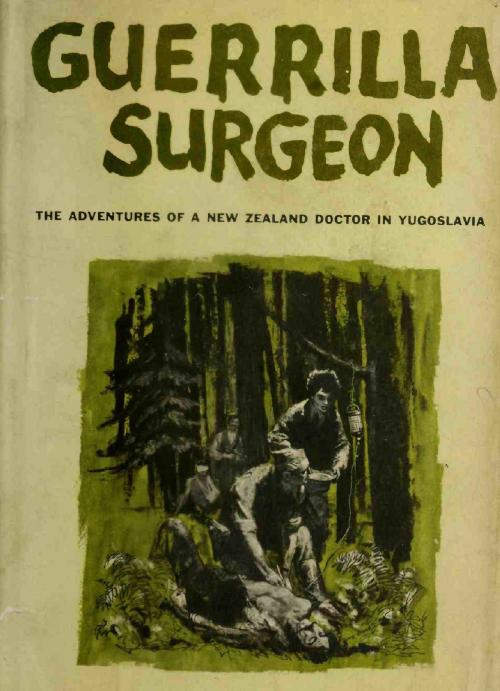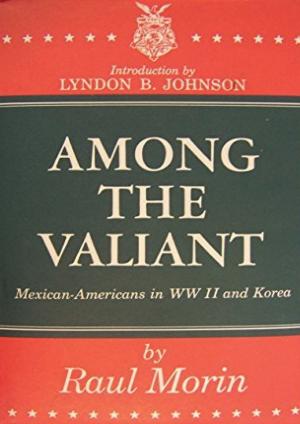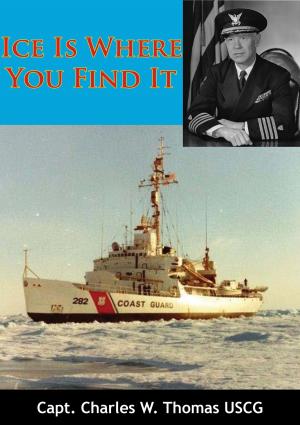| Author: | Dr. Lindsay Rogers | ISBN: | 9781786256546 |
| Publisher: | Lucknow Books | Publication: | November 6, 2015 |
| Imprint: | Lucknow Books | Language: | English |
| Author: | Dr. Lindsay Rogers |
| ISBN: | 9781786256546 |
| Publisher: | Lucknow Books |
| Publication: | November 6, 2015 |
| Imprint: | Lucknow Books |
| Language: | English |
Dr. Rogers was a New Zealander who, after duty with British troops in North Africa during the early years of the war, made the decision to enter guerrilla warfare in the Balkans and was accepted for training to join the Jugoslav partisans. The account of his experiences, written a decade ago after he had just left the country, has the freshness of recently known people and events and the detachment of a thoughtful mind which could pause to analyse and indicate their meaning for the course of victory and for future Balkan politics. On one level the narrative is full of the scenes of daily life. There are conversations with his aids Bill and Ian (important people in the book), the work in makeshift hospitals, the dangers of movement and escapes and the developing friendships with many of the partisani. But these last, for example, are also geared to show their tendency towards Russian sympathies and the unfortunate handling of British propaganda which made the partisansi think that Britain’s main contribution to the war was in helping Mikhailovich. We see too Dr. Rogers’ concern with medical methods. He was appalled at the rough and unsympathetic operation room techniques he found among German trained doctors; he saw the possibility for a system of evacuating the wounded to Italy. Eventually he became so valuable that Tito commandeered him from the base in Croatia, where Rogers was beginning to feel at home, to start a medical school in Bosnia. A personal history which is exciting and perceptive enough to hold its own in the war annals market.—Kirkus Book Review
Dr. Rogers was a New Zealander who, after duty with British troops in North Africa during the early years of the war, made the decision to enter guerrilla warfare in the Balkans and was accepted for training to join the Jugoslav partisans. The account of his experiences, written a decade ago after he had just left the country, has the freshness of recently known people and events and the detachment of a thoughtful mind which could pause to analyse and indicate their meaning for the course of victory and for future Balkan politics. On one level the narrative is full of the scenes of daily life. There are conversations with his aids Bill and Ian (important people in the book), the work in makeshift hospitals, the dangers of movement and escapes and the developing friendships with many of the partisani. But these last, for example, are also geared to show their tendency towards Russian sympathies and the unfortunate handling of British propaganda which made the partisansi think that Britain’s main contribution to the war was in helping Mikhailovich. We see too Dr. Rogers’ concern with medical methods. He was appalled at the rough and unsympathetic operation room techniques he found among German trained doctors; he saw the possibility for a system of evacuating the wounded to Italy. Eventually he became so valuable that Tito commandeered him from the base in Croatia, where Rogers was beginning to feel at home, to start a medical school in Bosnia. A personal history which is exciting and perceptive enough to hold its own in the war annals market.—Kirkus Book Review

![Cover of the book Ambulance No. 10. Personal Letters Of A Driver At The Front [Illustrated Edition] by Dr. Lindsay Rogers](https://www.kuoky.com/images/2014/june/300x300/9781782891772-Oidp_300x.jpg)


![Cover of the book A War Minister And His Work: Reminiscences Of 1914-1918 [Illustrated Edition] by Dr. Lindsay Rogers](https://www.kuoky.com/images/2015/november/300x300/9781786255624-qEOd_300x.jpg)




![Cover of the book Reminiscences Of A Grenadier [Illustrated Edition] by Dr. Lindsay Rogers](https://www.kuoky.com/images/2015/november/300x300/9781786251121-I7d1_300x.jpg)





![Cover of the book Light And Shade In War [Illustrated Edition] by Dr. Lindsay Rogers](https://www.kuoky.com/images/2014/august/300x300/9781782893080-Lzb6_300x.jpg)